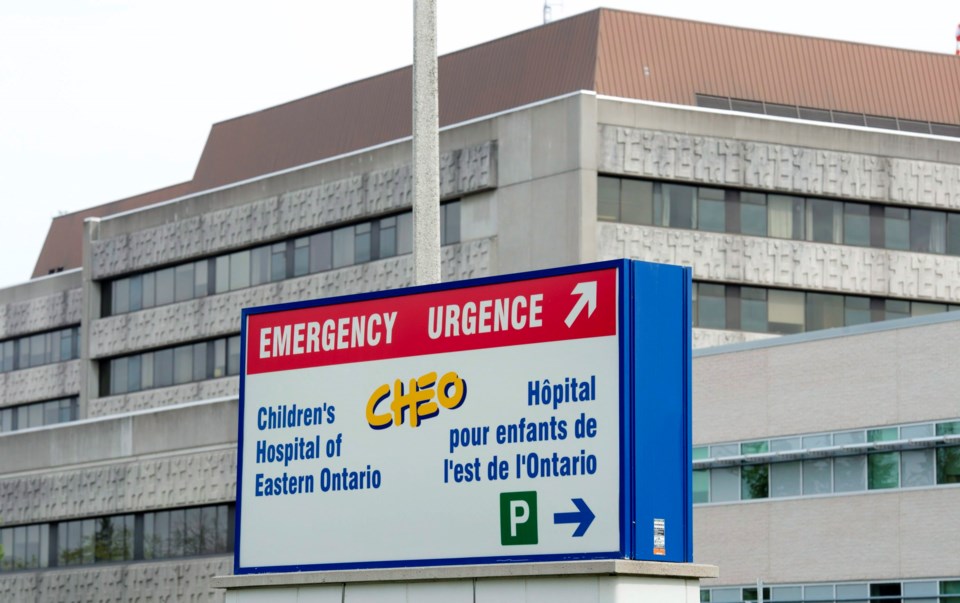Doctors are reporting a surge in respiratory syncytial virus among young children, a common illness that typically emerges a little bit later in the fall and winter season.
Only a small proportion of cases are severe enough to require hospitalization — most kids can be treated and recover at home — but RSV is pretty much ubiquitous among babies and young toddlers, says Dr. Jesse Papenburg, a pediatric infectious disease specialist at the Montreal Children's Hospital.
By age one, half of children will have been infected with RSV, and about two per cent of cases wind up in hospital, he says. By age two, 90 per cent of kids will have had RSV.
A very small proportion of kids are at risk of severe RSV — mainly babies with heart or lung disease or those who were born prematurely, he says.
Here’s some advice about what to do when your little one starts showing symptoms of RSV.
HOW DO I KNOW IT’S RSV?
Children with RSV typically have the same symptoms as a common cold. The Canadian Paediactric Society says that can include coughing, runny nose, fever and a loss of appetite and energy. Some kids, especially very young babies, can develop an infection called bronchiolitis that causes wheezing and difficulty breathing.
Dr. Mélissa Langevin, an emergency medicine pediatrician at CHEO in Ottawa, says nasal and respiratory congestion is common.
“You can imagine that the smaller you are, the more that congestion affects your ability to breathe, ability to eat and drink, and be comfortable,” says Langevin.
HOW LONG DOES IT LAST?
Expect a bout of RSV to last more than a week, says Langevin, with fever typically lasting one or two days and the peak of illness arriving on days four and five.
“This usually gets worse before it gets better. And that is a natural course of RSV. And after that peak children usually do then turn the corner and start doing much better,” says Langevin.
HOW DO WE TREAT RSV AT HOME?
Dr. Antonio D'Angelo, head of the pediatric emergency department at Montreal's CHU Sainte-Justine says it's key to maintain hydration and comfort. For babies, it’s especially important to clear out the nose because they rely on a liquid diet and have to breathe while drinking and swallowing.
“If they're completely congested, what happens is they'll take a lung full of air from their mouth and while they're breathing they can choke," he says.
He suggests clearing a baby's nose with saline so they're able to drink properly. The drops can provoke a cough, and that's good, he adds.
"They sometimes even cough to the point where they vomit some secretions and that's good because you want those secretions to be out of their bodies," he says.
Langevin recommends a "snot sucker" for kids under six months who are very congested. If clearing the nose and expelling secretions doesn't help, consult your primary care provider.
“I always tell families, don't worry too much about solids, your children may not be very hungry for solid foods, but you want to be drinking lots very frequently.”
Langevin says infants should be watched closely for signs of difficulty breathing. That may include pulling between the ribs or pulling at the neck.
WHEN SHOULD WE GO TO THE EMERGENCY DEPARTMENT?
Take your child to an emergency department if they have trouble breathing or lips that look blue, the Canadian Paediactric Society says.
Babies younger than three months with a fever should always be taken to the ER, adds CPS, or if they are unable to suck or drink.
For those a bit older, the society says symptoms that warrant a doctor's attention include a fever for more than 72 hours, loss of appetite or vomiting, or coughing to the point of choking or throwing up.
Watch for any signs of difficulty breathing and monitor fatigue, eating and drinking, says D'Angelo.
"If they're not able to drink half of what they would normally drink, or if they're in so much distress that they're becoming fatigued … then obviously they have to be seen by the emergency department," he says.
HOW CAN WE PREVENT INFECTION?
Papenburg recommends many of the tips we’ve learned from guarding against COVID-19: wash your hands frequently and stay home when sick.
“Don't go visit young children if you're sick, even if it's just a mild cold. Avoid visiting especially newborns,” he says.
“When you're out in crowded indoor areas, wearing a mask can help reduce the risk as well for children and adults."
For babies at very high risk of severe infection, a monthly injection of a monoclonal antibody called palivizumab can be given during RSV season to help cut the risk of hospitalization in half, says Papenburg.
— With files from Jordan Omstead in Toronto
This report by The Canadian Press was first published Oct. 26, 2022.
Cassandra Szklarski, The Canadian Press



